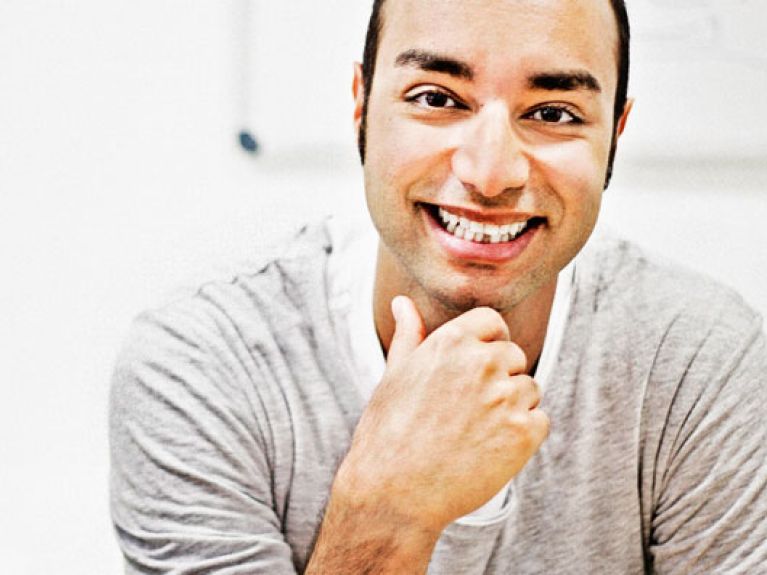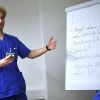The research network ResearchGate
The story of the Berlin-based research network ResearchGate sounds like a tale from Silicon Valley.

Probably every scientist has experienced it: he is working on a task and is stumped. Despite libraries, e-mails and conferences – no help in sight. Exactly this happened to Ijad Madisch. At the end of 2007 he was stalled in his virological research. He sought advice, but found none amongst his colleagues. In this predicament the idea occurred to him for a “Facebook for researchers”. In 2008, together with two friends, the German physician of Syrian origins set up ResearchGate. Today the Berlin-based research network has more than three million users, roughly a third of the world’s scientists.
The successful model is, as so often, relatively simple. Scientists can sign up free of charge with the e-mail address of their research institution, create a user profile and specify areas of interest. At the platform they can upload publications and carry on exchanges with the community. There are now 11 million scientific publications and 50 million abstracts posted at the site. New is the uploading of data from failed experiments. This can help prevent experiments that have already floundered from being repeated. In addition, a so-called ResearchGate Score measures how other users rate the research of members of the site.
The portal is one of the most successful German start-ups of recent years. Word of it has spread as far as Silicon Valley. Microsoft founder Bill Gates and Matt Cohler, LinkedIn co-founder and one of the first staff members of Facebook, are among the investors. The platform increasingly finances itself through job advertisements, announcements of conferences and as a marketplace for laboratory products. The prime goal, however, remains to intensify scientific exchange, to organize research more efficiently, to drive on progress and to enable scientific breakthroughs. “Making money is okay”, says Madisch. “But to create something lasting is, in my view, the higher good.”

